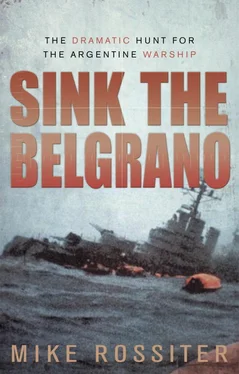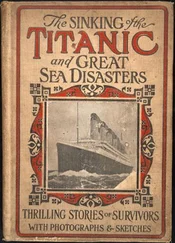So for several years negotiations were kept alive by discussions about improving transport links between the islands and the mainland, and various visits to the islands by British government ministers on a mission to encourage the islanders to see their future as part of Argentina. These tactics failed, because they never delivered anything that would satisfy the Argentine government, and at the same time they served to alarm the islanders and so caused problems in Westminster. Their one advantage was that they resulted in endless postponement of a resolution to the problem, but this came at the cost of increasing disbelief in the minds of Argentine negotiators about the possibility of ever solving the dispute.
Successive British governments made efforts to break the deadlock. In 1976, the Labour government under James Callaghan appointed a senior Labour peer, Lord Shackleton, to visit the Falklands and produce a report that would examine the islands’ long-term economic future. The hope directly expressed to Shackleton was that such a report would help persuade the islanders that there was no future as a community tied to Great Britain, 8,000 miles away. The choice of Lord Shackleton was an odd one. He was the son of the famous Polar explorer Ernest Shackleton, who was buried on the small island of South Georgia 700 miles to the east of the Falklands. HMS Endurance , an armed ice patrol ship that regularly visited the Falklands and patrolled the area, generally providing a visible symbol of Britain’s interests, was named after Ernest Shackleton’s own ship, which had been trapped in the ice of the Weddell Sea off Antarctica and sank in 1915. The name Shackleton may have been reassuring to the Falkland islanders, but it was certainly not designed to impress the Argentine government, who associated it with everything that they found objectionable about Britain’s presence in the region.
Lord Shackleton’s visit to the Falklands was also affected by political chaos in Argentina. Perón, who had come to power again in 1973, was dead, and the military were preparing for a possible coup. The Argentine government told Britain that they would not offer Lord Shackleton and his team any facilities or help in travelling to the Falklands; they viewed his visit as a provocation and they would be withdrawing their ambassador to London. The report that Shackleton produced was not good news for the Callaghan government either. He argued that, with enough money from Britain, the Falklands might have a promising economic future. He recommended that the airport runway at Stanley should be lengthened, and that fishing should be developed as an alternative industry to farming. The costs would be high – far too high for a population of just two thousand people – but the government also realized that the report had blown back in their faces: it would strengthen the resolve of the islanders to remain British, as well as confirming the Argentine government’s view that negotiations were nothing more than a British delaying tactic.
There had been an indication of the way the wind was blowing in Buenos Aires during Shackleton’s visit to the Falklands. A Royal Research Ship – perhaps inevitably named Shackleton – was carrying out a scientific survey in Antarctic waters. Six hours from Port Stanley, she was intercepted by an Argentine destroyer, Almirante Storni , and ordered to halt. This order was ignored, only to be followed by another instruction to alter course and make for Ushuaia, the southerly Argentine port on the Beagle Channel. When this was also ignored, two shots were fired, with a warning that the third would hit the Shackleton . With its captain ignoring everything, the RRS Shackleton reached the safety of the harbour at Stanley. There was some concern about how she would escape, but there was no further antagonism and she sailed north, escorted by the Endurance .
This incident, however, was something that the British government could not ignore. It was evidence that there had been a fundamental change in Argentine policies towards the Falklands, brought about by a military coup in March 1976. Admiral Eduardo Massera, the naval representative on the military junta, was the most aggressive and nationalistic of the military leaders who had taken power. The navy quickly became a key player in the machinery of internal repression, and at the same time adopted a more aggressive policy in pursuit of Argentine territorial ambitions. Argentina had unilaterally imposed a 200-mile maritime economic interest zone, and the Argentine navy came into conflict with Russian and Bulgarian trawlers that were found fishing inside this limit, exchanging shots and receiving casualties. It was Massera who had now engineered the conflict with the Shackleton and took a very hard line about the recovery of the Falklands, believing that military action might be necessary.
The change in Argentine negotiating tactics focused the British government’s mind on what their options might be if there was any overt action against the Falklands, which it was thought would take the form of cutting communication links with the islands. The Ministry of Defence believed it would be possible to supply the islands with food and fuel using commercial vessels or Royal Fleet Auxiliary ships. The presence of the Endurance , and the detachment of thirty-seven marines on the islands, would, it was hoped, deter any military adventures. It had better, because Britain’s ability to reinforce the islands was almost non-existent, short of detaching the aircraft carrier Ark Royal and its squadrons of Phantom jet fighters. A new round of discussions was coming up, and the Foreign Secretary David Owen took the question of Argentine military action quite seriously. He pursued the matter in Cabinet, and persuaded the Secretary of State for Defence to authorize the dispatch of a nuclear submarine to the area. HMS Dreadnought would be accompanied by two frigates and two fleet auxiliaries, ready to be on station close to the Falklands in December 1977 when talks with Argentine foreign ministry representatives were due to take place in New York. There have been several claims since then that the presence of a nuclear submarine was discreetly brought to the notice of the Argentine junta by Sir Maurice Oldfield, head of the Secret Intelligence Service, and that this helped to deflect a plan by the Argentine navy to mount an invasion. Accounts by the Prime Minster at the time, Sir James Callaghan, and the Foreign Secretary David Owen disagree about whether the junta was informed or not, but it is clear that in Argentina some plans for military intervention were being developed, although there was no evidence at the time that they had got to the stage of mobilizing forces. In any event, the talks in New York concluded fairly amicably, and another set of meetings was scheduled to be held in Lima early in 1978. The British government, however, was now viewing any talks with Argentina in the light of the possibility that the junta might resort to some show of force.
David Owen knew that HMS Endurance might shortly be paid off and not replaced, because the Ministry of Defence thought it too costly. It was his opinion that ‘I see no prospect for some time to come of our being able to dispense with her… I view Endurance , together with the Royal Marine contingent on the Falklands, as a vital and visible military presence.’
A new British government was elected in May 1979, under Prime Minister Margaret Thatcher. This was one of the most ideologically motivated administrations to be elected since the Labour government of Clement Attlee in 1945. Margaret Thatcher was determined to cut government spending, reduce taxes and limit the power of the trades unions. She had had to fight the old guard of the Conservative Party to become leader, and once elected she wanted to transform the political landscape of Britain. Economically, Britain was stagnating, with high unemployment and inflation. Internationally, the Cold War was not going well. Russia had increased its presence in Africa, with military bases in Angola, and was intervening with economic and military assistance to Afghanistan, which would eventually lead to the Soviet invasion in December of that year. There were some areas, however, where a new government could clear the decks: the long-running problems with the settler rebellion in Rhodesia and the difficulties over the Falklands might be solved by decisive action. The new Foreign Secretary, Lord Carrington, quickly set about dealing with the problem of Rhodesia, and a constitutional conference in London soon resulted in a settlement and the independence of the country under the name Zimbabwe. This led to the election as President, to Lord Carrington’s chagrin and Conservative backbench MPs’ fury, of Robert Mugabe, the Chinese-backed leader of the Zimbabwe African National Union (ZANU).
Читать дальше












